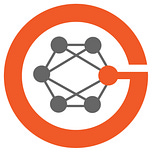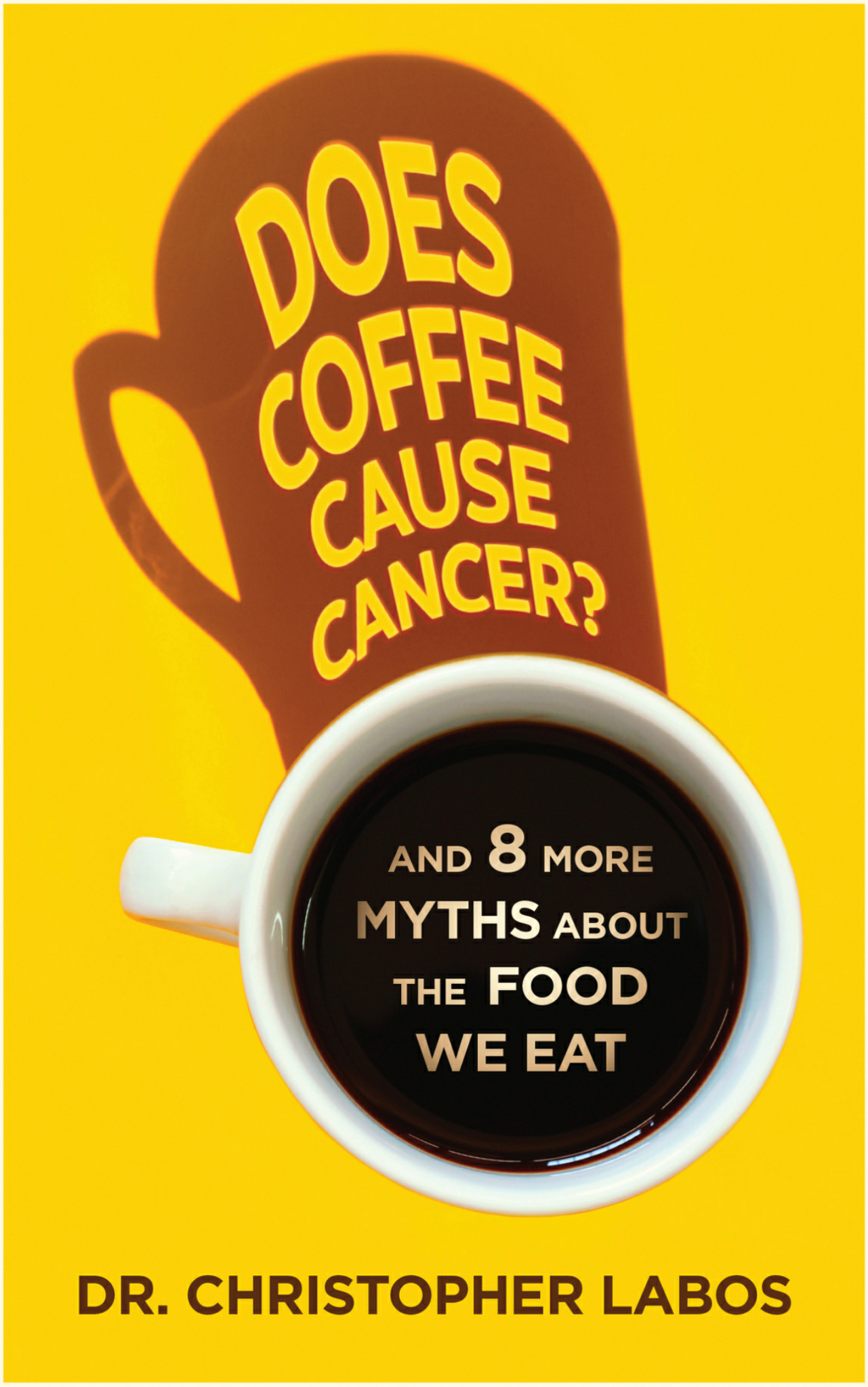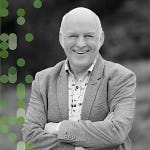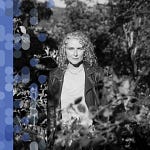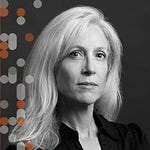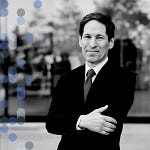A book that reads like a novel; it’s humorous, it’s a love story. Dr. Christopher Labos, an imaginative cardiologist and epidemiologist at McGill University, takes us through multiple longstanding misconceptions about different foods and drinks, and along the way provides outstanding educational value.
Video snippet from our conversation. Full videos of all Ground Truths podcasts can be seen on YouTube here. The audios are also available on Apple and Spotify.
Transcript with external links and links to the audio recording
Eric Topol (00:07):
Hello, it's Eric Topol with Ground Truths, and with me today is a cardiologist, Chris Labos from Montreal, who has written an extraordinary book. I just read it on my Kindle, “Does Coffee Cause Cancer? And 8 More Myths about the Food We Eat. Chris teaches at McGill University. He is a prolific writer at the Montreal Gazette and Canadian broadcast system, CBC, CJAD radio, CTV News. And he also has a podcast on the Body of Evidence and he probably has other stuff, but welcome Chris.
Christopher Labos (00:49):
Hello. Hello. Hello. Thank you for having me. It is a great honor to be on your podcast. I am in awe of the work that you've been doing, I mean, for all your career, but especially during Covid. So it's a big thrill for me to be on the podcast.
Eric Topol (01:03):
Well, for me, I have to say I learned about a person who is not only remarkably imaginative but also humorous. And so, have you ever done standup comedy?
Christopher Labos (01:16):
I have not. Although I was asked to chair the research awards that we did here at McGill one year because I've been doing local media stuff and they said, can you come and be like the MC? And I said, sure. And I said, do you want me to be funny? And they were like, well, if you can. And I went up there and people were laughing and laughing and laughing and then people, like some of my former attendings had come up to me and they're like, Chris, I don't remember you being this funny as a resident. And I was like, well, I guess you come into your own when you start your own career. But I think people were very, it's tough MCing a research awards because you're essentially, it's kind of like a high school graduation where you don't read the names in alphabetical order, right? It's like one name after the other. And I went up there and I tried to throw in a little bit of humor and people seem to like it. So I think that was the first, that was when I started to realize, oh, if you inject a little bit of levity into what you're doing, it tends to resonate a little bit more with people.
Eric Topol (02:13):
Well, no question about that. And what I love about this book is that it wasn't anything like I thought it was going to be.
Eric Topol (02:21):
Amazing. It was a surprise. So basically you took these nine myths, which we'll talk to, hopefully we'll get to several of them, but you didn't just get into that myth. You get into teaching medical statistics, how to read papers, all the myths. I mean, you are the master debunker with entertainment, with funny stuff. It's really great. So this is great, before we get into some of these myths and for you to amplify, but this is a gift of communication, science communication that is you get people to learn about things like p-hacking and you throw in love stories and all kinds of stuff. I mean, I don't know how you can dream this stuff up. I really don't.
Christopher Labos (03:10):
I sort of look back at the inception of this. This book did have sort of a few iterations. And I think the first time I was thinking about it, I mean I wrote it during Covid and so I was really thinking about this type of stuff. It's like how do we educate the public to become better consumers of scientific information? Because there was a lot of nonsense during Covid. So teaching them about confounding, which I think through a lot of people when we started talking about low vitamin D levels and Covid and outcomes and all that. And so, I started like, how do I write this type of book? And I thought, yeah, this should probably be a serious science book. And the first version of it was a very serious science book. And then the idea came and try to make it a conversation. And I think I sort of wrote it.
(04:02):
There's a book that may not be that popular in the US but it was kind of popular here in Canada. It was called The Wealthy Barber. And it was all about personal finance. And the idea of the book was these people would go into a barbershop and the barber would talk to them about how to save money and how to invest in all that. And it was fairly popular and people liked that back and forth. And I said, oh, maybe I could do something like that. And then I wrote the first chapter of the doctor who goes in to talk to the barista and I showed it to a friend of mine. I said, what do you think? Do you think this would work? And her response to me by email was two lines. It was pretty good period. But I kept expecting him to ask her out at the end. And the minute she said that I thought, oh my God, this is a love story. And so, I reshaped everything to make this a love story. And I don't think the publishers were expecting that either because they were like, the first comment from the editor was, most science books don't have a narrative arc to them in character, but this one does. So there you go.
Eric Topol (05:00):
This is a unique book. I hope that people who listen or read the transcript will realize that this is a gift. It's a model of communication and it just is teaching things almost like you don't realize it. You're just learning all this stuff. So let's get into some of these because they're just masterful. I guess I should start ask you, you have nine of them. You could have picked 20 more, but which one is your favorite? Or do you have one?
Christopher Labos (05:31):
I think the one, it's hard to say. I think the first one in the book is the vitamin C one. And I think it's the most interesting one to explain to people, not just because vitamin C to fight the common cold is so pervasive as a product and a thing that people believe. But it also, I think has the greatest opportunity to teach people about what is one of the most important ones, which is subgroup analysis and p-hacking. And it's so easy to bring that back into a comedic level with some of the graphs that I put in there. I think a close second would probably be the coffee one where I was talking about selection bias, because those examples of online dating and then all the jokes that came from it. And it's hard to say how much of it was the subject and how much of it was the character.
(06:21):
Because I'd always heard stories of authors when they say like, oh, the characters will tell me what to say. And I always thought that sounds like bollocks. How could that be possible? You're the author, you write what's on the page. But then the minute I started actually writing it and started envisaging these characters, all of a sudden the characters took on a life of their own and they were dictating how the story ended up. So the coffee one I think is also good too. And I guess it became the title of the book. So I guess that's a good indication that was popular. But when you can really spin it out and make it obvious to people using common examples, I think those are interesting ones. So the vitamin C and the coffee ones, I think were probably the most interesting.
Eric Topol (07:02):
Let's take those first because you've mentioned them and then hopefully we'll get into some others. Now in the vitamin C, you're going on a plane and you hook up with this guy, Jim, on the plane. I know none of this stuff really happened, and you're explaining to him the famous ISIS-2 trial about the Gemini and Libra subgroup. So for those of people who are listening, can you review that? Because that of course is just one of so many things you get into.
Christopher Labos (07:33):
I know it's almost amazing how short a memory we have in medicine, right? And again, this is sort of surprising me. I sort of knew the study and then I went back, and I looked at it and I thought ISIS-2 was in 1988. That's not that long ago. The fact that we didn't give aspirin. So for people who don't know, I mean, we did not give aspirin to people with cardiac disease for a very long time. And it was really from 1988 afterwards. So relatively recently, I mean I realized it's been a couple of decades, but still. So ISIS-2 was really the first trial to show that if you give aspirin to somebodywhen they're having a heart attack, you see a benefit. But what was fascinating in the study was this one subgroup analysis of people in whom it did not work.
(08:19):
And when I give public lectures, I often use this example because it's such a beautiful teaching case, and I go ask people, what do you think it was? And people are like, oh, hemophiliacs, smokers, people who drink alcohol. And then you find out, no, the subgroup in whom aspirin does not work is Geminis and Libras. And everybody sort of laughs and they think it's funny. And it's a beautiful example because a lot of people think it's like, oh, it was a joke or it was sort of silly science. But no, it was actually done purposefully. And the authors put that in there because they wanted to make the point that subgroup analysis are potentially misleading. And I sort of am a little bit in awe of, I mean the power or the intelligence to actually make it a point with the editors like, no, we're going to put this in here essentially as a teaching tool.
(09:09):
And it's amazing to me that we're still using it as a teaching tool decades after the fact. But it was just to show that when you have these tables where you have umpteen subgroup analysis, just by random chance, you will get some spurious results. And though our brain understands that Zodiac signs have nothing to do with the effectiveness of aspirin, you do the same subgroup analysis and diabetics and non-diabetics, and everybody was like, oh yeah, that's plausible. And yeah, it might be, but the computer doesn't know the difference, right. To the computer these are all ones and zeros. So if you don't go into it with a healthy skepticism about the limitations of subgroup analysis, you will eventually get fooled. And the problem with vitamin C research is I think a lot of very smart people have gotten fooled on this because they're like, well, overall the data is negative, but if we slice it up, we can find something that's positive. So maybe there's something here. And the number of people who have fallen in that trap over the years is unfortunately quite high.
Eric Topol (10:10):
No, and it's still happening and it is a famous subgroup story, but I just want to remind everybody that this was in the chapter on vitamin C and it's going into aspirin and subgroups. So each one of these chapters is not confined to the myth. They go into all sorts of other teaching examples in a humorous and fun way through conversations. Here it was with Jim on the plane. Now another one you mentioned, I forgot about this one. In the British Medical Journal, there was a paper, the Miracle of DICE Therapy.
Christopher Labos (10:45):
Miracle of DICE Therapy. Yeah, that's another brilliant one, because again, you couldn't do a study like this today, but basically for people who aren't aware of the paper, I mean, I think it was published in the Christmas issue. So again, just to show you how sometimes even in medical science, the humor is really, really effective. So what researchers did was they went to this neurology conference and they got all the people to participate in this live study, and they gave them dice and said, you're going to roll these dice. And they had white, red, and green dice and said, the exercise is for all of you to roll this dice and then analyze the data and tell us which color dice is off which one has been weighted. Because if you roll a one, two, three, four, or five, the patient has survived their stroke. If they roll a six, the patient died of their stroke.
(11:33):
So you go, you roll these dice dozens of times, generate your data. I mean, what we would do today with a random number generator but they were rolling dice. And they said, you figure out which of these dice is skewed. And so, the people at the conference went, they rolled their dice, they crunched their data, and they said, the red dice are skewed. There's a difference between the red dice and the white and green dice. And then the researchers revealed aha jokes on you. All the dice were the same. And the funniest part about that is that a lot of the people in the room didn't believe them. They refused to believe them that the dice were weighted because, and one of my favorite quotes was when student A refused to believe that his days were really loaded, he rolled one six and then a second and then a third, and he said, the room felt eerily quiet as he rolled a fourth six.
(12:25):
He had never rolled four sixes in a row in his life. And if you're there, I mean, yeah, you're going to be like, how do you doubt the power of your own eyes? You roll four sixes in a row, you think to yourself, gee, this must be the loaded dice. But that thing would happen. You put enough people in a room rolling enough dice, you will eventually get four sixes in a row in the same way that if you put enough monkeys in front of enough typewriters, eventually you're going to get all the works of William Shakespeare. So it's shocking how much our own human biases make us immune to the realization that random things are going to happen. And there was another, I think there was a quote in that paper too, where doctors are very willing to admit that chance affects whether they win a raffle, but they are surprisingly unwilling to admit that chance can affect the results of their medical research. And we don't appreciate it, even though, I mean, the reality is it happens all the time and we don't take the necessary steps to fix it sometimes and to address it, and we keep making the same mistakes over and over again.
Eric Topol (13:32):
Yeah, no, that's a great paper to illustrate. Again, a lot of important teaching points. Now as we get into the coffee, does it cause cancer? It brings up another theme in the book that I noticed. What you do is you pick up on papers or broadcasts that were decades ago that have become inculcated in our minds and our thoughts. And in this case, it was a famous New England Journal paper in 1981 raising the question about does coffee, if you drink too much coffee is that a risk factor for pancreatic cancer? So maybe you could take us through that, and somehow that gets into the NBA, it gets into H. pylori for ulcer. I mean, but maybe you could help get us through this coffee and cancer story.
Christopher Labos (14:23):
Yeah, I mean, well, and it's still happening isn't it, right? In 2018 in California, coffee was declared a carcinogen after that court case. I mean, it was ultimately overturned. So I sort of explained that saga in the chapter as well. And of course, we're going through it now with the decaf coffee, right? There are people trying to petition the FDA to get methylene chloride removed from decaf coffee, even though, I mean, I'm fairly dubious that that's a real significant risk factor in the grand scheme of things. And I was a little bit sort of worried when we were trying to pick a title for the books. I was like, are people going to think this is absurd? Are people going to think this is a pseudoscience book? And I was a little bit worried because people are not going to, they're going to think, oh, this is silly.
(15:03):
Obviously, coffee doesn't cause cancer, and yet we still talk about it. And so, I mean, the 1981 paper just to sort of go way, way back, and this was not a nothing paper. This was in the New England Journal of Medicine with some of heavyweights in the field of epidemiology. And I don’t want to discount what these people did. They have more illustrious careers than I will ever have in the field of epidemiology. But this one paper, they made a mistake. What they did was they went around to the local area hospitals, recruited all the patients with pancreatic cancer, recruited controls from the same hospital, and then gave them questionnaires about what they ate, what they drank, how much they smoked, fairly standard stuff. And so, when they were analyzing the data, they saw some associations with tobacco and alcohol, but they saw this really strong association with cancer where the patients who drank a lot of coffee had a near tripling of their risk of pancreatic cancer.
(16:02):
And so, this made headlines, I mean, this was in all the major US newspapers of the time, interviews people were like, well, maybe we should stop drinking coffee. And they pointed to the Amish and other groups that don't drink coffee and have very low rates of cancer. And what was critical in the critical mistake that they made, which is now taught in intro epidemiology classes we know about it, is that if you pick hospital patients as your control, you have a problem. And it's become so common that actually has a name now it's called Berkson's bias. But the problem with picking hospitalized controls is they are not the same as the general population. And in 1981, why were you going to be admitted to a gastrointestinal ward in a major US hospital? It was probably because you have peptic ulcer disease and you tell this to people now, and of course they have no living memory of this.
(16:53):
They've forgotten that we used to do partial gastrectomies to treat peptic ulcer disease, which is a shocking thing to say out loud. And then it gives you also the opportunity to teach people about H. pylori and everything that happened. And then the discovery and the famous case of the researcher drinking a broth of H. pylori to make himself sick and his wife having to drag him to the hospital throwing up every morning. And really how it changed the field of medicine because now we treat peptic ulcer disease with you eradicate H. pylori with two weeks of antibiotics, and we give people a proton pump inhibitor. But back in the day, the people who were in hospital had peptic ulcer disease and other gastrointestinal complaints because of those gastrointestinal issues. They didn't drink a lot of coffee because it would upset their stomach, because coffee can upset people's stomach a little bit.
(17:48):
And so, it wasn't that the pancreatic cancer patients drank more coffee, it's that the control group drank less, and that's why you saw that discrepancy. Whereas if you did the same study in the general population, which was subsequently done, you see no influence of coffee consumption. And so, it’s a prime example of how selection bias can happen. And it’s a seminal paper because it has become a teaching case, and it’s become, for the most part, so well understood that most people are not going to make the same mistake again. And so, the point of highlighting these things is not to make fun of people, which is an unfortunate trend I've started to see online of people being very, very critical and dismissive of the publish research. Like, no, listen, this is how medicine is supposed to work. It's an evolution. We learn from our mistakes and we move on and we have to keep talking about these stories so that people don't make the mistake because choosing the right control group is important.
(18:44):
And so, that's sort of the message of that chapter because each chapter, you're right, it's about a food, but it's also about an epidemiological concept, be it p-hacking or selection bias or information bias or confounding or reverse causation. So I often joke that if you read this book each chapter, you will become very, very smart at dinner parties. You'll be able to figure out terms that no one's heard of before. They're like, Bob, I know you've heard that red wine is good for you, but are you familiar with the concept of reverse causation? And people are going to be very, very impressed with you and keep inviting you to dinner parties the rest of your life afterwards. So there you go. That's another reason to read the book.
Eric Topol (19:20):
Yeah, really. Well, I do want to get into the red wine story too, because it exemplifies this time instead of that New England Journal, this was a 60 Minutes segment in 1991, and then a paper, I guess I went along with that about how red wine is great to reduce heart disease. It still, here it is, what, 30 some years later, 34 years later. And people still believe this. They still think that red wine is preventing heart disease or reducing it. So can you set the record straight on that one?
Christopher Labos (20:06):
Yeah, listen, if you want to drink red wine, you can. I mean, I have nothing against red wine. I mean, I'm drunk right now. No, I'm not.
Eric Topol (20:15):
By the way, that chapter you were drinking wine with your friend, maybe imaginary friend Alex or Alexi. Anyway, yeah. So it was great to hear you are drinking red wine and you're talking to each other about all the cockamamie stuff about it.
Christopher Labos (20:30):
I mean, yeah, the thing, if you're going to do a story, if you're going to do a book chapter about red wine, I think one of the important things is to have two friends drinking at a conference. I mean, let's be honest, that's what usually happens. And so, throughout the evening, they're sitting there polishing off the wine, and then they go on almost a drunken pub crawl. Not quite, it's not quite that bad, but it was almost fun to sort of introduce that element to it of the story. But the red wine thing is fascinating. I get this a lot. I mean, I'm still practicing. I'm still seeing patients and patients come up. I've had, this is not rare, I have had patients literally come to me in clinic and say things like, doctor, my blood pressure is good. I'm checking it at home. I got my blood tests.
(21:12):
My cholesterol is good. I'm eating healthy, I'm exercising. But I find it really hard to drink two glasses of red wine every day. I just don't like red wine all that much. It’s like, wow. No, please sir. Please, for the love of God, stop. It's still there. And what's fascinating is that if you ever go back and watch the 60 Minutes clip by today's standards, it's very weird. You go back and again, it was a product of its time. They were very, very focused on cheese and fat, which of course now we have a much more nuanced understanding about with regard to cholesterol. I mean, a lot of it's genetically mediated and all that, but you go back, it was partially about the red wine being good for you, but it was also there was this really strange subplot, if you will, where they were saying that milk was bad for you and that we should stop getting kids in the US to drink milk. And they thought that a lot of the cardiovascular risk in the US was attributed to the fact that children drink milk routinely, which again, weird by modern standards. Again, I was aware of the 60 Minutes story, but I'd never seen it and I hadn't seen it at the time. And going back to watch it, you're like, wow, that's odd. That's odd.
(22:26):
Again, this idea that, oh, we should be having kids drink wine at a young age. And it was like, really? Do we really want to start having our kids drink alcohol? I'm not so sure about that. It was weird stuff there. But again, it was all part of this French Paradox, which again was a product of its time in the eighties and nineties, this desire to really understand why was heart disease increasing so much in North America and our real failure to really get a handle on it. And with 30 years of hindsight, I think we're in a much better position now to understand why it was the residual effect of all that smoking. It was the residual effect of our more sedentary lifestyle that was starting to happen post World War II. And I think we've largely got a handle on most of those risk factors now.
(23:13):
But the red wine thing persists because I think people like drinking wine and there are not, what's the word I'm looking for, there is not a significant number of people who still believe this. And we had a change in guidelines up here in Canada where the amount of healthy drinking was really reduced down from 2 drinks a day to 1-2 drinks per week, and it caused a bit of a fury. And there was a local cardiologist here who was going on news and saying is like, I don't believe this, red wine is good for you. And I was a little bit taken a breath like, you're a senior cardiologist at a university hospital. You should not be saying stuff like this. And so, they actually had us on to have a debate, and I think they were expecting us to go at each other.
Eric Topol (23:59):
Oh, wow.
Christopher Labos (24:00):
And I was a little bit diplomatic because I've gotten used to this. I know how to bob and weave and avoid the punches. And then at the end, I think it was either me or the reporter asked him, he's like, so what do you tell your patients? And he was like, well, no, I do tell them to drink less because of the AFib risk and the blood pressure and the blood sugar. So I was like, well, you see, you're telling your patients to drink less alcohol for any number of reasons. And irrespective of the U-shaped associations, which is the main statistical argument of the chapter, there's a lot of other reasons to be wary of alcohol. I mean, I think we've proven pretty conclusively the AFib risk. There was that Australian study where if you get people to abstain, you decrease their AFib burden.
(24:42):
So a lot of sugar in alcohol, I mean the blood pressure and diabetes, there's a lot of reasons to not drink this particular sugary beverage and not to mention sort of the cancer associations too that we've seen as well. So it was an interesting thing to argue with him. But the point of the chapter was really to explain why do we see this U-shaped association? And I'll spoil the chapter for people. The statistical concept is called reverse causation. And that happens because it's not that abstaining from alcohol makes you sick. It's that people who are sick end up abstaining from alcohol. So if you have high blood pressure, diabetes, heart disease, AFib, cancer, you've probably been told don't drink alcohol. And so, if you do just a single cross-sectional study where you ask people, how much do you drink? And they say zero, you're probably identifying a high-risk population because most studies, most, not all, but many studies do not make the distinction between former drinkers and never drinkers. And there's a big difference between somebody who used to drink and then quit and somebody who never drank throughout their whole lives.
Eric Topol (25:47):
Yeah, no, it's great. And I think I just want to come back on that. I think Norway and several other countries are now putting on their alcohol products. This may cause cancer, and the American Cancer Society has put a warning on this. So the cancer story is still out there, but you also make among hundreds of important good points in the book about how these food diaries are notoriously inaccurate. And you already touched on that with the survey thing, but it's hard to get, we don't have randomized trials of people drink a lot or don't drink. You can't drink with adherence to that. So it's out there, and of course, people like to drink their wine, but there's a risk that I think has been consistent through many of these studies that is a bit worrisome. I don't know what you would, if you'd say it's conclusive or you'd say it's kind of unsettled.
Christopher Labos (26:49):
I mean, I think it's as settled as it's going to get because I don't see somebody doing a randomized controlled trial on this. And this is the problem. And there has been this trend recently for people to say, well, if there's no randomized controlled trials, I'm not going to believe it. You're like, okay, look, a fair point. And when you're talking about interventions and therapies, then yes, we should absolutely do randomized controlled trials. And I've made that point vociferously when it comes to vitamin D and a lot of the other stuff. The problem is it's going to be very, very hard to do a randomized controlled trial with alcohol. I mean, that was tried. It fell apart and it fell apart for many reasons, not the least of which was the fact that the alcohol industry seemed to be influencing what outcomes people were going to look at.
(27:34):
So that was problematic. I sort of mentioned it right at the tail end of the chapter as well. So if you're not going to have an NIH funded trial to look at in a randomized fashion, does alcohol effect atherosclerosis or cancer outcomes? You're not going to get it. No private industry is going to do it. You're not going to be able to get it done. So given that we have to live in the real world, and I'm always a firm argument in us basing ourselves in reality and living in the real world, we have to make the best decision we can with the evidence that we have available. And I would say, look, I'm pretty sure alcohol is not good for you. I think it is actually detrimental to your cardiovascular health overall. And I think we can say pretty definitively that any potential benefit that people think exists in terms of myocardial infarction, I think that's all a statistical artifact.
(28:26):
I think if you were to analyze it properly, it would all sort of vanish. And I think it largely does. And there's been some really interesting genetic studies using instrumental variables. So what the Mendelian randomization studies that really do suggest that there really is a linear relationship and that the more you drink, the worse it is. And there's no plateau, there's no floor, there's no J shaped curve. It really does appear to be linear. And I've been, I think, fairly convinced because I think the Mendelian randomization studies are as good as we're going to get on this issue.
Eric Topol (29:01):
No, I think it's an important point. And I think there again, the book will hold on so many of these things, but we keep learning all the time. And for example, going back to coffee, there's many studies now that suggest it will reduce type 2 diabetes, it will improve survival, cardiovascular, the mechanism is unknown. Do you think there's, so not only does coffee not cause cancer, but it actually may make you healthier. Any thoughts about that?
Christopher Labos (29:35):
Well, I can state, again, I'm ruining the book. I can state, I think fairly unequivocally coffee does not cause cancer. I think that is pretty clear. Even protective is harder, I think it's possible that a lot of the benefit that's been seen, because it is very observational, could just be the result of residual confounding. I think that is still possible. And again, we have to learn to live with uncertainty in medical research. And when we talk about Bayesian statistics, which is a subject I love, but probably outside of the topic for today, you have to be able to create a framework for what we're certain about and what we're uncertain about. So if you look at the spectrum of risk, clearly the risk ratio for coffee is not above 1. Is it below 1 or is it really straddling the null value? And I'm a little bit uncertain. I think if there is a benefit, it's probably small. I think a lot of it is residual confounding. The one point that would make though, if we're going to talk about coffee being beneficial, we have to talk about coffee. Not a lot of the stuff they are serving at coffee shops now, which are probably more akin to milkshakes than actual coffee.
Eric Topol (30:52):
Yeah, that’s a really good point. Plus, the other thing is the spike of caffeine at much higher levels than you might have with a standard coffee that is typical, these Grande or super Grande, whatever they are. Now another, since we talked about things that people enjoy like coffee and wine, we have to touch on chocolate. The chapter was fun on chocolate, is it a health food and also about the Nobel Laureates. Can you enlighten us on that one?
Christopher Labos (31:26):
This is another, I mean, again, people are going to think that I hate the New England Journal of Medicine. I don't just, that they provided such great teaching material over the years. And to be fair, the study that we're going to talk about the Nobel Laureate chocolate study, I mean if you read it, it really feels like it was meant to be satire and it probably should have belonged in the BMJ Christmas issue. When you read it and you read the disclosure statement where the author is like, disclosure the author admits to loving chocolate, and you're like, okay, that's a weird thing to write in a serious article. So it was probably meant to be a satire. And when you read some of the interviews that Messerli had given afterwards, it does seem that he was trying to just make a point. But it seems to have taken off a life of its own.
(32:10):
What the study was, and it's again, first time I've ever seen a single author on a New England paper, which probably should have been a warning sign for people because generally New England papers don't have single authors on them. But basically, what he did was he was at a conference as the way the story goes, and he was thinking up this idea. So he went on the internet, went onto Wikipedia, and was basically looking up how many Nobel prizes have been won by various countries, looked up the average chocolate consumption on a variety of other websites and basically plotted out a regression line and showed this really linear association between average chocolate consumption per country and number of Nobel prizes per country with the suggested rules that if you eat chocolate, you'll win a Nobel Prize. Except, and notwithstanding all the jokes that came up later, there was another Nobel laureate, and I'm blanking on his name right now, there is in the book. When he was interviewed, he said something like, I believe this is true. Now, milk chocolate might be fine if you want a Nobel Prize in chemistry or medicine, but if you want a Nobel Prize in physics, it really does have to be dark chocolate.
Christopher Labos (33:20):
He said this to the Associated Press, the Associated Press took the quote and put it on the Newswire, and it got reprinted over and over again. And I think he had to publicly apologize to all the people at his university, which to me seemed ridiculous. He was obviously joking, and people took this study very, very seriously. The explanation for why this study is not true, there's actually a word for this, and it's called the ecological bias. And you have to remember something if you're going to look at chocolate and Nobel prizes and look at it in terms of country as the level of exposure, as the unit of exposure. Countries don't eat chocolate and countries don't win Nobel prizes. People eat chocolate and people eat Nobel prizes. And you can't show that the people eating the chocolate in Switzerland are the ones who are winning the Nobel Prizes.
(34:10):
Right. That's the point you can't show, and this is a humorous example, but we've made this type of mistake before when people were talking about saturated fats causing breast cancer. You can look at countries and show that countries that eat a lot of saturated fat have more breast cancer. But that's also because western countries with other basic differences are the countries where you eat a lot of saturated fats and where women develop higher rates of breast cancer. But that doesn't mean that the women who eat the saturated fats are the ones who get breast cancer. And so, the chocolate one is funny because again, it’s exactly what you said. People like eating chocolate, so they want a reason to believe that it is good for you even when it isn’t. And so, they will latch on to the cardiovascular benefits, which have frankly been disproved in the COSMOS study. They will latch on to the neurological, neurocognitive benefits, which have themselves been disproved. And what's fascinating about the whole story is that you would say, oh, we need a large randomized trial. Well, we had that, it was called the COSMOS study. It got published. I mean, maybe it happened during Covid, people didn't notice, but it got published. It was negative. That should have been the end of the story, and it's not, people still believe it.
Eric Topol (35:23):
Well, there's a lot of confirmation bias there, isn't there? Again, the thread through all the chapters is biases, all the different biases that come in play. And this one, knowing Franz Messerli, he's Swiss, so of course he'd want to, yeah, and he eats a lot of chocolate, by the way. And he also comes into play in the chapter you have on salt. It's really interesting. You have chapters on breakfast. Is it really the most important meal? Were there other chapters that you thought about putting in the book that you didn't wind up there, or if you were to write a second edition that you would add?
Christopher Labos (36:01):
I wanted to do a chapter on fish oils. Actually, there's a tweet that you did that I use in my teaching material, which is two days apart, fish oils are good for you, fish oils are bad for you. Because again, that's one of those things where it's just the cycle of all these studies showing no benefit, and yet there's one study that shows a thing and it just keeps coming back. And so yeah, fish oils would've definitely been one. If there is a sequel to this book, and I'm hoping to make a sequel to it.
Eric Topol (36:30):
You should, you should definitely.
Christopher Labos (36:32):
So fish oils is definitely going to be in there because there were originally going to be ten stories. There's only nine in the book. And because it got to the point where the publisher was like, this book is getting a little long, maybe we've got to wrap it up. Maybe it's time to land the plane. And I was like, okay, fair, fair. So we'll cut it at nine. So we had to drop the fish oil one, but that'll be in the sequel if there is a sequel, I want to do, I have a list. It's just off camera actually. I have a little notepad where I've been jotting down ideas. So like fish oils, artificial sweeteners, I'll throw MSG in there, which is a wild story for anybody who's ever dug into the history of MSG. It is a wild and borderline nonsensical story of why we believe that MSG might be bad for us.
(37:14):
Although, I mean, that was, again, very much a product of the eighties and the nineties. So yeah, there's a lot of stuff out there, but fish oil is definitely one that I want to tackle just because it's so relevant. And I still have patients coming in that are going to pharmacy and buying over the counter fish oil supplements. I have to tell them, it's like, look, the evidence on this is pretty clear. It doesn't help. If anything, maybe it slightly increases risk your AFib risk. There's some stuff there. So yeah, again, you could be easily tempted into thinking this is sort of frivolous and funny, but it actually has an implication for people's daily lives because the people out there walking around the street, they believe these things go stop a hundred random people.
Eric Topol (37:59):
Yeah, no, everything in this book is approaching things that are the dogma still, or at least uncertainty, and you get it straight. I mean, you’re an epidemiologist as well as a cardiologist in your training, but you don't use that in a way that is trying to teach people. You're doing it really subtly. And then the other thing just to bring up is that obviously you're debunking all this stuff, and we live in a time where we got all this misinformation and blurred truths. I mean, that's one of the reasons why I pick Ground Truths for this podcast. But it's diminished or certainly challenged the role of physicians and scientists because things are not reliable. They're not constant. They're changing. You touched on that earlier, but can you address, I mean, one of the things besides communicating in a way that makes it easily understandable and fun, which you do so well, it's also addressing trust. How do we promote trust?
Christopher Labos (39:10):
I think you have to, yeah, that's a really challenging question because I think the old model is not going to work anymore. The model of issuing a guideline statement to be like, this is the truth, people will just ignore it because we have issued new guidelines on alcohol consumption. It didn't change behavior. If you want to get people to drink less, you have to address the underlying reason why they do it, and it's this persistent myth. So I think one of the reasons why pseudoscience succeeds as much as it does is because so much of their communication is about storytelling. You can go at people with these large randomized control trials, and yet they will still latch onto an anecdote, right? Because, oh, my friend Bobby had a bad side effect with the Covid vaccine. That's why I'm not getting vaccinated. And so, storytelling is a really, really powerful tool.
(40:05):
And I think the reason why I thought this type of book format could work is it's a story. Because even if you don't remember the details, I was at a lecture last night and I was speaking to a dermatology friend of mine, which sounds like it's an episode from the book, but it's not. But I was speaking to a dermatology friend of mine, and he had read it. He says, Chris, I read it. I really liked it. He goes, I don't remember a lot of the examples you put up. He is a busy guy. He’s got young kids. He read the book, and I was giving a lecture based on this book and exploring all of these concepts. And he was like, I remember when you started talking about the aspirin. I couldn't remember what the example was, but I remembered your point that it's all about subgroups.
(40:47):
And that's the thing is that even if people don't remember the details, even if people don't remember the New England paper about coughing pancreatic cancer, even if they don't remember the COSMOS study about chocolate, even if they don't remember the Nobel chocolate association, they will remember the take home message, which is that you have to be careful. If somebody is torturing the data, they understand why publication bias is a real problem. So that's the point, is that if you tell a story, it sticks in people's minds. So it's almost very Socratic in a way. If you ever read Plato, he's not writing a philosophical treatise in the same way that other philosophers do. It's a conversation between Socrates and other people, and it's a very one-sided conversation because Socrates is telling everybody why they're wrong. So I tried to sort of nuance that and improve upon that framework, but you take away the general gist of it, and that's what we need to give to people.
(41:48):
We need to tell them, we need to give them the tool so that they can say it's like, oh, well wait a second. You're telling me that broccoli is going to prevent pancreatic cancer? Was this a food questionnaire thing? And you're giving people that little bit of background knowledge that they can ask intelligent questions. And I think that's what we have to do going forward, because we have to introduce that little bit of skepticism into their thought process so that they can question what they see on the internet. Because the reality is a lot of what they see on the internet is going to be wrong because it's clickbait, it's headlines, it's all the issues that we have with our modern communication strategies.
Eric Topol (42:31):
Yeah. Well, I think storytelling and what you just described is so darn important. And so, just to wrap up this book, Does Coffee Cause Cancer?: And 8 More Myths about the Food We Eat is much more than what that title says. I hope you're going to do a sequel. You ought to have a Netflix special.
Christopher Labos (42:54):
Please tell somebody that, I don’t how to get a Netflix special, but use your clout and make it happen, and I'll invite you over for dinner.
Eric Topol (43:01):
Sounds good. We'll have red wine together, and drink a lot of decaffeinated coffee. No, this has been fun. You've definitely had an impact. And I hope everybody takes a chance to get through this book because it's like a novel. A novel, which is somehow you've floated in all this really important stuff in medicine, both content, how to interpret data, how to interpret papers, statistics, somehow invisibly in a novel. You've got it all in there. So congratulations on that. It's a new genre medical book like I've never seen before. And so, we'll be following all your next works, and I'm sure your podcast Body of Evidence must be something along these lines as well. So I'll have to take a look and listen to that too.
Christopher Labos (43:56):
Thank you so much. That is very, very, you have no idea how much it means to me to hear you say something like that, that has warmed the cockles of my heart.
Eric Topol (44:07):
Alright, well Chris, thank you.
***********************
Thanks for listening, reading or watching!
The Ground Truths newsletters and podcasts are all free, open-access, without ads.
Please share this post/podcast with your friends and network if you found it informative
Voluntary paid subscriptions all go to support Scripps Research. Many thanks for that—they greatly helped fund our summer internship programs for 2023 and 2024.
Thanks to my producer Jessica Nguyen and Sinjun Balabanoff for audio and video support at Scripps Research.
Note: you can select preferences to receive emails about newsletters, podcasts, or all I don’t want to bother you with an email for content that you’re not interested in.

